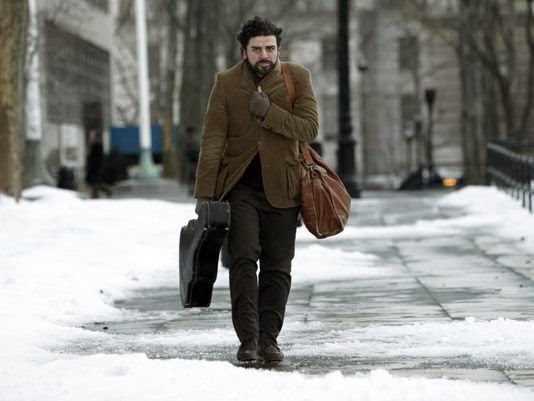Chef is a film about the two Fs - Fatherhood and Food.
Eighteen years ago Jon Favreau wrote and directed - along with his buddy
Vince Vaughan - his breakout film Swingers. In his latest movie, which he also
writes, directs and stars in, he is almost unrecognisable. He is twice the
size, for one thing, now with a beard, tattoos, glasses, a receding hairline.
His voice, though, is still distinctive, that almost-whine, the New York vowels still
evident even after decades in LA.
He is also surrounded by one of the best casts in a film this year. Scarlett
Johannson, Dustin Hoffman, John Leguizamo, Sofia Vergara, Robert Downey Jr, all
show up at one time or another, yet it is certainly Favreau's film from start
to finish.
He plays the chef of the title, who becomes disillusioned with his job
and who realises that he is stuck in a rut. He ends up walking out of his
restaurant after a food critic trashes him in an online review.
Favreau's character, Carl, ends up in Miami, with his son and ex-wife, and the chef
gets back to basics, opening up a food truck and going back to his Miami Cuban
food roots.
Naturally, food has a central role in the movie. The film luxuriates in
the joy of food, it is easy to see where Favreaus' extra pounds have come from,
he is obviously fond of his nosh, and it shows. Every dish is lovingly prepared
and filmed, the camera lingers on the tasty flesh of meat as if it were human
bodies writhing in pleasure, pure food-porn. It is impossible to come out after
the film and not feel massively hungry.
The fatherhood theme is explored through Favreau's character, Carl
Casper who, with his new food truck, manages to reconnect with his ten year old
son who he had neglected after his divorce.
It is this son, Perry, who documents the chef's new project, and drums
up business for the food truck using social media. In fact, it is really a film
of its time, central to the plot are blogs, videos taken on cell phones and posted
on-line, twitter wars, Facebook pages and Vine videos.
The relationship between father and son is one of the strongest parts of
the story. The film manages to avoid an overdose of sentiment, yet the
developing relationship between Carl and Perry, quickly becomes central.
It is Carl's relationships - with his son, with his best friend, played
by John Leguizamo, and even with his ex wife - that make this film warm and
funny and really impossible to dislike. It is a feel-good film for the decade, a
real pleasure.
Similar to Chef in many ways, is Irish director John Carney's new film,
Begin Again.
Mark Ruffalo plays washed up music producer, Dan, who - like Favreau's
character in Chef - is unfulfilled by his job, divorced, and with a child, this
time a teenage daughter, who he has lost touch with.
And like Chef, it is about a new project that takes him back to his
roots, and which awakens in him the passion he once felt for his profession.
For Dan, his
passion is music.
This new project is Greta, played by Keira Knightley, a
singer-songwriter who he discovers in an open mike night. They decide to make
an album, though they use the open spaces of the city, New York, as their studio, recording in
alleys, on roof-tops, on the street.
And also like Favreau's film, Dan reconnects with his daughter, Violet,
though this new venture. She plays guitar on some tracks, father and daughter
join together like they have never done before.
Begin Again is a feel-good movie, the tone is light, the music scenes
are joyous and celebratory, nothing dark lasts for too long. There is some
pain, Greta gets cheated on by her boyfriend, Dan has a drinking problem, but
there is never any sense that anything bad is really going to happen.
Keira Knightley really sings on Greta's tracks, which have a certain
charm, but which are essentially forgettable. A little like the film itself,
likeable but light, pleasing but insubstantial.
Cold in July is a different kettle of fish entirely. It too has a great
cast, with Michael C Hall (Dexter), Sam Shepherd and Don Johnson in the central
roles.
The film suffers from not really knowing what it is. There are elements
of thriller, of horror, of suspense, and also a revenge plot towards the end,
as well as family drama and social commentary.
The action takes place in 1989. Michael C Hall plays Richard, who hears
noises one night in his family home, and discovers a burglar in his living
room. Richard shoots him dead.
This one act, which turns out to have been an accident - Richard's
finger slipped on the trigger - itself sets in motion another series of events
that are connected to the mob, corrupt policemen and the murders of young
vulnerable women.
The film is unpredictable, this is a strong point of the plot, it sets
out red herrings and does not conform to expectations. The tension hardly
relents from the first scene, Richard is in almost constant danger of one kind
or another from beginning to end.
Yet it is also a little too slow paced, you never feel like you are
really inside the story, it never feels like the film has really got going. It
is at times intriguing, but in the end it resorts to the conventional, and is
lacking a heart and could do with more depth.









.jpg)



.jpg)







